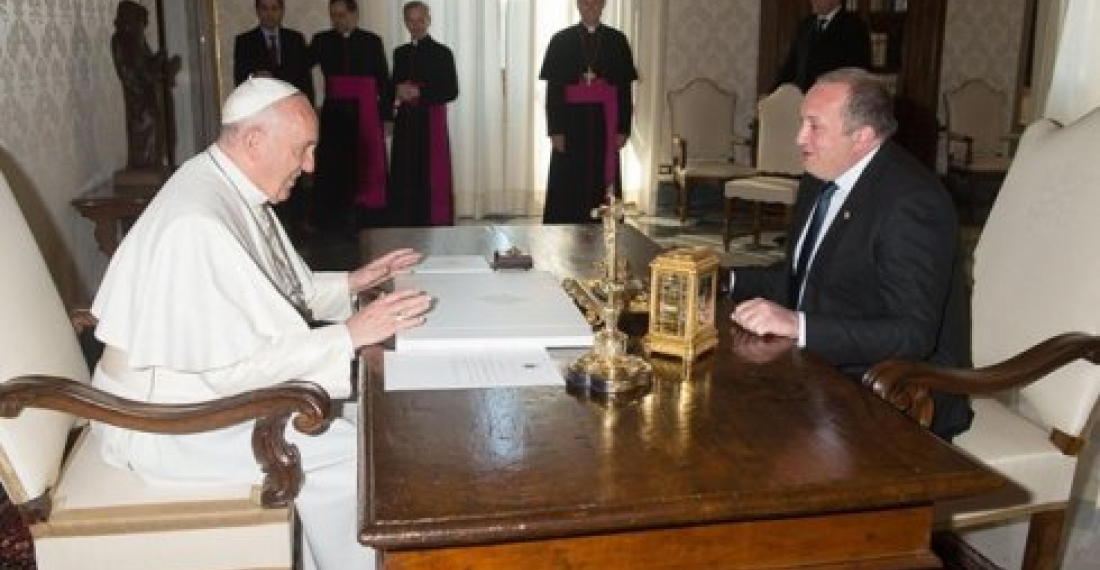Commonspace.eu political editor commented on the political significance of Pope Francis' visit to Georgia and Azerbaijan
The Caucasus is a complex region at the crossroads between continents, cultures and civilisations. The visit of Pope Francis will bring forth some of the many issues.
The Pope's first stop will be Georgia, an Orthodox country with a long and distinguished history. Georgia's biggest challenge is its relations with its large neighbour Russia. Russia harbours hegemonic ambitions over Georgia, seen most vividly during the 2008 war between the two countries and Russia's subsequent creation of protectorates in Abkhazia and South Ossetia, Georgian territories that want to secede from Georgia. Relations remain tense and the two countries do not have diplomatic relations. The Pope is likely to make a reference to the tens of thousands of displaced Georgians, victims of the wars in Abkhazia and South Ossetia, as part of a more general reference to the refugee crisis in Europe.
Pope Francis arrives in Georgia one week before the country goes to the polls in competitive elections to choose a new parliament. It is a bit puzzling why Vatican diplomacy acquiesced, or probably even proposed, these dates so close to elections. The visit of Pope Francis is not controversial in a political context. But in Georgia politics and religion often interphase, and the presence of elements of hard line orthodox priests and their followers who have made insulting statements directed at the Pope raises the risk of the visit getting entangled in the political debate.
But Georgia is today a very different country then only a decade ago. It is most appropriate that a reformist Pope visits a country that has embraced reforms and is trying to implement them as part of an ongoing process towards European and Euro-Atlantic integration. The visit of the Pope is another affirmation of Georgia's western orientation, and of the readiness of the majority of the leadership of the Georgian Orthodox Church to embrace openness and dialogue.
From Georgia the Pope will go to Azerbaijan, a secular country with a largely Muslim population. It is not often that the Head of the catholic Church can visit a Shia Muslim country. Azerbaijan is a keen supporter of the dialogue between cultures and civilisations, and is sensitive to incidences of Islamophobia in Europe. According to Agenzia Fides, the news agency of the Vatican, Azerbaijani President Ilham Aliyev, speaking on the eve of the Pope's visit denounced the risk of a resurgence of fascism in the heart of the Old Continent. Speaking at the 5th International Humanitarian Forum being held in Baku, President Aliev said "some politicians and experts in the world are building a negative image of Islam by linking it with terror and at the same time forgetting to say that terrorism mainly affects Islamic countries".
Azerbaijan has just held a referendum on constitutional changes. The Pope's visit only days after the referendum has also raised some concerns.
Vatican diplomacy is very thorough and sophisticated, and one can only think that the decision to visit Georgia and Azerbaijan so close to sensitive ballots indicates that the Vatican thinks the visit to the two countries is important enough to justify the risks. The Pope visited Armenia in June. The Vatican hopes that the papal visits to the South Caucasus will highlight the importance of the region and the need for peace and dialogue.
source: This is a commentary prepared by the political editor of commonspace.eu
photo: Pope Francis and Georgian president Giorgi Marghvelashvili during the latter's visit to the Vatican in April 2016.







